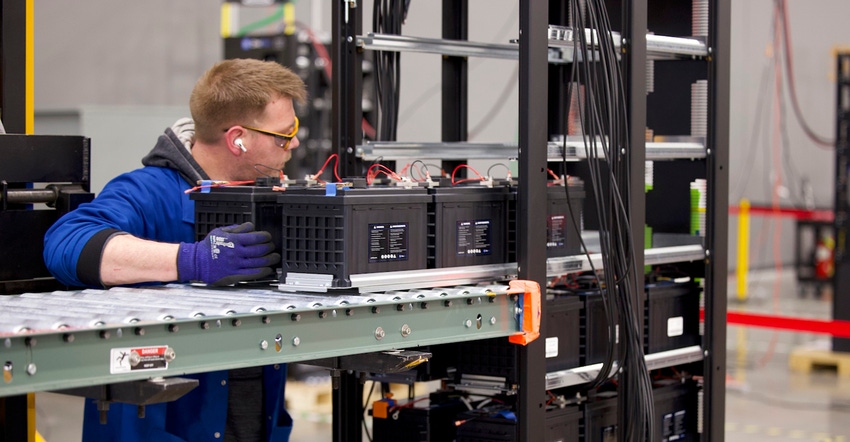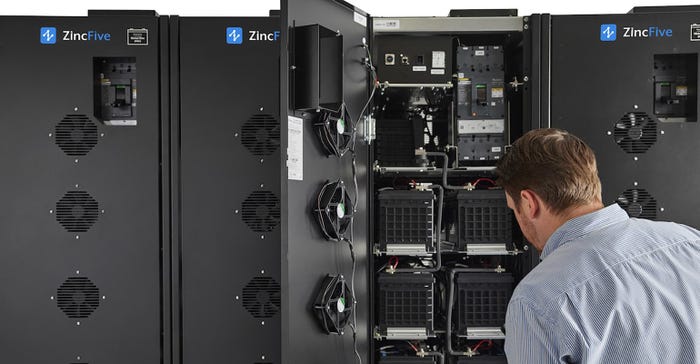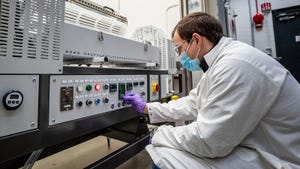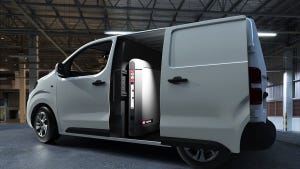
As the demand for efficient energy storage grows, researchers and engineers are constantly exploring new battery technologies. One technology gaining attention is the Nickel-Zinc (Ni-Zn) battery. Let’s explore the pros and cons of Ni-Zn batteries, shedding light on their potential and drawbacks as an alternative for energy storage in various applications with the input of Steve Jennings, a Sr VP Sales & Marketing for ZincFive—a manufacturer of Ni-Zn batteries, and Ni-Zn battery based solutions.
The pros of Nickel-Zinc batteries
1. High power density: Ni-Zn batteries have twice the power density of lead-acid batteries. For the same level of backup power, Ni-Zn is about half the size and half the weight. “Ni-Zn batteries are specifically designed to discharge the energy very rapidly in the battery. That is what power density does [enable high discharge rates over short periods of time], versus the energy density; high energy density batteries that discharge at lower rates for prolonged periods of time,” said Jennings. “There are no Ni-Zn batteries powering electric vehicles—EVs—because that is a high energy density application. And Ni-Zn batteries are not well suited to that. A lithium battery is well suited to that because it is a high energy density battery,” he continued.
2. Good fit for mission critical applications: In mission-critical applications such as backup power for datacenters, a high power density battery such as Ni-Zn battery is ideal. Datacenters can get the smallest footprint of battery backup when using Ni-Zn because of their high power density characteristics.
Jennings noted that nowadays datacenters campuses are requiring up to 100MW of power—which is the equivalent power for about 80,000 US homes. “Datacenters use uninterruptible power supplies (UPS’s) and generators for backup power. Datacenters are usually designed with five minutes of battery runtime where UPS’s serve as a bridge and when long-term backup is needed [for hours or days], then generators are used instead,” continued Jennings.

3. Relieable and Safe: Ni-Zn batteries are safe because they are non-toxic, non-flammable and do not run the risk of thermal runway. Ni-Zn batteries are reliable because they can operate within a wide operating temperature range from 30˚C to 75˚C.
Jennings noted “The Ni-Zn battery chemistry does not exhibit thermal runaway. The battery will heat up, but it will not go into thermal runaway. Because of that, they can discharge these high rates of current safely. And because there is no thermal runaway, there are no transportation restrictions. So, these Ni-Zn batteries routinely get shipped in quantity by air, sea, and ground with no transportation restrictions around the world.”
4. Sustainability: Ni-Zn batteries are environmentally friendly because they do not contain toxic heavy metals such as cadmium. These batteries are less harmful to the environment, and can be recycled in facilities that recycle nickel-based battery such as nickel-metal hydride.
5. Cost-effective: Ni-Zn batteries are relative low-cost compared to other advanced battery technologies like lithium-ion batteries. They use abundant and cost-effective materials such as nickel and zinc, which can reduce overall manufacturing and production cost.
The cons of Nickel-Zinc batteries:
1. Medium energy density: The energy density of Ni-Zn batteries is not as great as the energy density in lithium-ion batteries. “Many people are using high energy density batteries in a high power density application. And because that is not a very good fit, they end up having to purchase more batteries than they would with a high power density battery. If you need a high discharge rate for a short period of time, you have to oversize a high energy density battery compared to a high power density battery. You have to buy more lithium or more lead than Ni-Zn in an application. Now, if you flip it the other way, and you have solar grid storage for long-duration discharges, you will have to oversize the nickel-zinc battery compared to lithium and lead because those are a better fit.” concluded Jennings.
2. Relative new technology: Ni-Zn batteries offer particularly good advantages, but they are still relatively less common in the market compared to well-established battery technologies like Li-ion batteries.
When considering Ni-Zn batteries for specific applications, careful evaluation of their pros and cons is essential to determine their suitability and effectiveness in meeting the desired requirements.
About the Author(s)
You May Also Like





